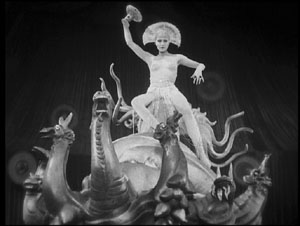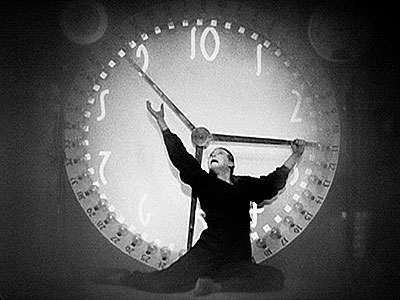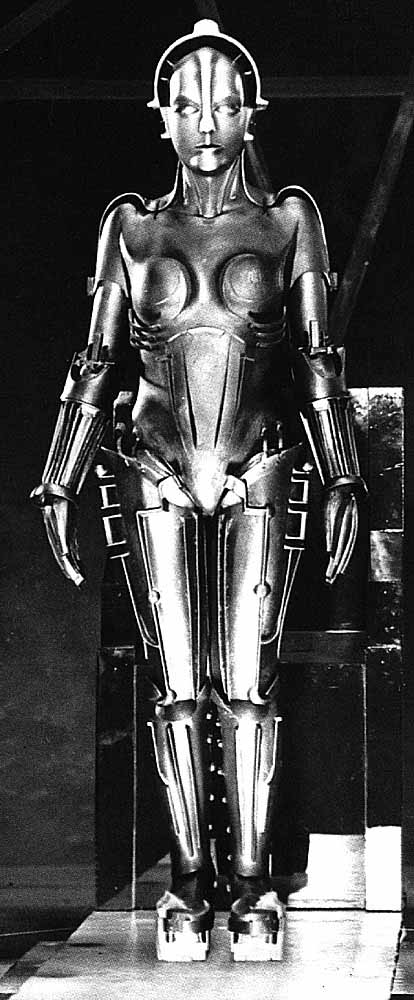

An examination of gender, religion,
and other issues
in one of SciFi's most famous films
| Women' Roles | ||
 |
Why is the robot a woman? | |
When Freder enters the Lower city in the film, we see only males working the machines - women, it would seem, do not work, but are more likely to play the role of housewife. If men are the sole workers in the Lower city, why does Rotwang's robot to replace the workers have the body of a woman? The answer to this question is not clear in the American cut of the film. Some may have seen it as a convenient plot device to aid Joh's decision to give the robot Maria's appearance. Other scholars regard the female robot as a sexual threat to Freder. The robot's sexuality could also be a representation of a transition of thinking - robots were originally only conceived as helpful creations, but once they began to have a more negative association, cultures assoicated the possible evil nature of a robot with the inherently 'evil' nature of women, referring of course mainly back to the story of Eve in the garden of Eden and spreading sin throughout the world. Another simple explanation is that the machine Maria is representative of the threat of castration to Freder - Freder is hanging on to Maria's every word because of his love for her, and his beloved turning on him would have been a serious blow to our Hero's ego. The answer is that the robot was simply a creation of lust. In Lang's original version of the film, the robot was made as a replacement for Hel, Joh's deceased wife who was also a former girlfriend of Rotwang. Rotwang intended for the robot to have Hel's appearance so that Rotwang could finally possess her. In Thea Von Harbou's novel, Rotwang says also that he made the robot female because "every man-creator makes himself a woman." Again, he wishes simply to dominate a woman, and who better to dominate than someone programmed to be controlled completely? There is also the possibility that the robot Maria represents an evil that the Nazi party would fear - a rampant, free woman. Though later in life Fritz Lang was decidedly anti-Nazi, there is speculation that this political epiphany was not complete until after Metropolis was made. Thus, the robot Maria is a representation of how women ought not to act, while the real Maria is docile and does not take part in much action, as women were expected to act in Nazi Germany. This idea is also supported by the robot's exotic dance at an Upper city restaurant - the woman's sole purpose is to provide entertainment an look pretty for men, and it is only after the dance, when the robot incites the rebellion, that the people begin to fear Maria and thus the robot. |
||